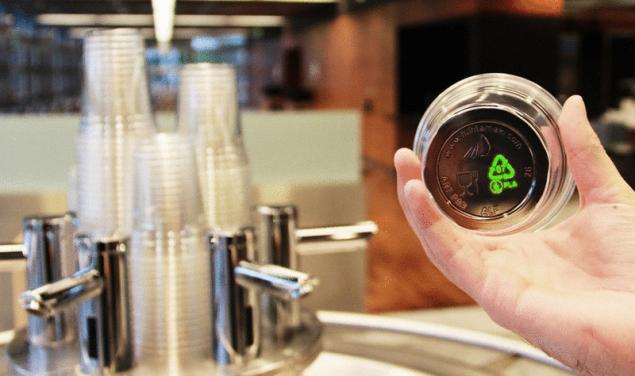413
Bioplastics from glycerol – a new alternative to the plastic from oil

Plastic wastes are now one of the major environmental problems of mankind. Most types of plastic do not dissolve, but disintegrate into even smaller pieces while remaining a polymer and polluting the environment. However, there are already promising alternatives are biodegradable polymers, and the most famous of them is PLA plastic (plastic made from polylactic acid), which is used to produce disposable cups, packages and other packaging.
It is estimated that the demand for PLA plastic is constantly growing and by 2020 could reach about one megaton per year. To meet the growing demand for this type of plastic the researchers from the Higher technical school of Zurich (ETH) have developed a new environmentally friendly process more polylactic acid from glycerin that is a by-product in the production of biodiesel.
Currently polylactic acid is produced by fermentation of sucrose, which is contained in plants. A new method for preparing this substance from glycerine will not only increase the production of PLA, but also significantly reduce manufacturing waste, thereby reducing the load on the environment. Because the glycerin obtained as a byproduct in the production of biofuels of first generation, contains impurities of ash and ethanol, so it is not suitable for use in the chemical or pharmaceutical industry. In addition, its heat output when burning low enough that does not allow you to use it as fuel. Typically, the glycerin is sent to secondary treatment and then either dumped into wastewater, or sent for animal feed (which is also a very controversial decision concerning the safety and effects on animals).
In new technologies the first fermentative glycerol is converted into dihydroxyacetone and then after processing – polylactic acid, using a heterogeneous catalyst, which was also developed at ETH. This catalyst has high reactivity and has a long service life. It consists of a microporous mineral of the zeolite, the structure of which can significantly speed up chemical reactions.
According to the researchers, the new technology provides a reduction in overall carbon dioxide emissions by 30 percent, compared to the process of complete fermentation. In addition, by reducing the total cost of PLA production from glycerol producers can increase their profits.
Source: www.ozemle.net























